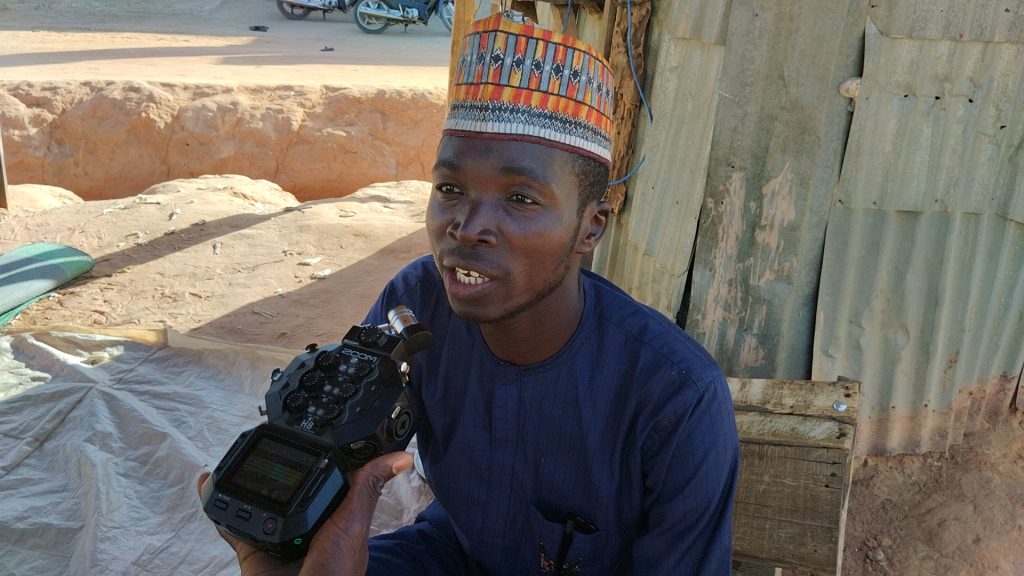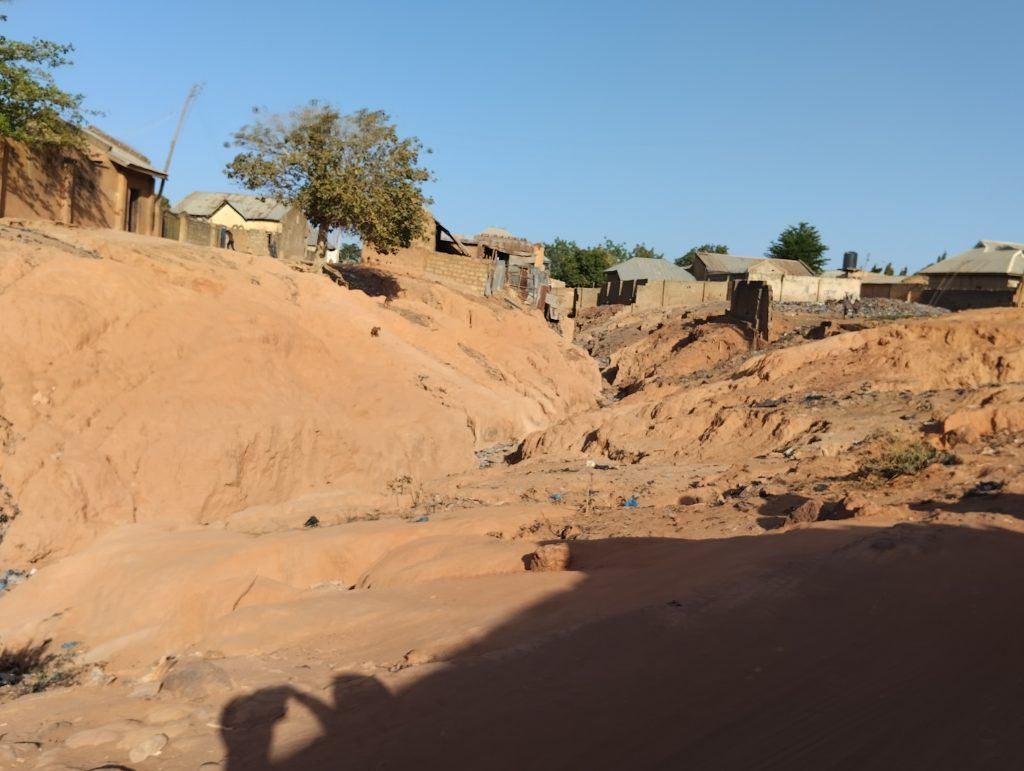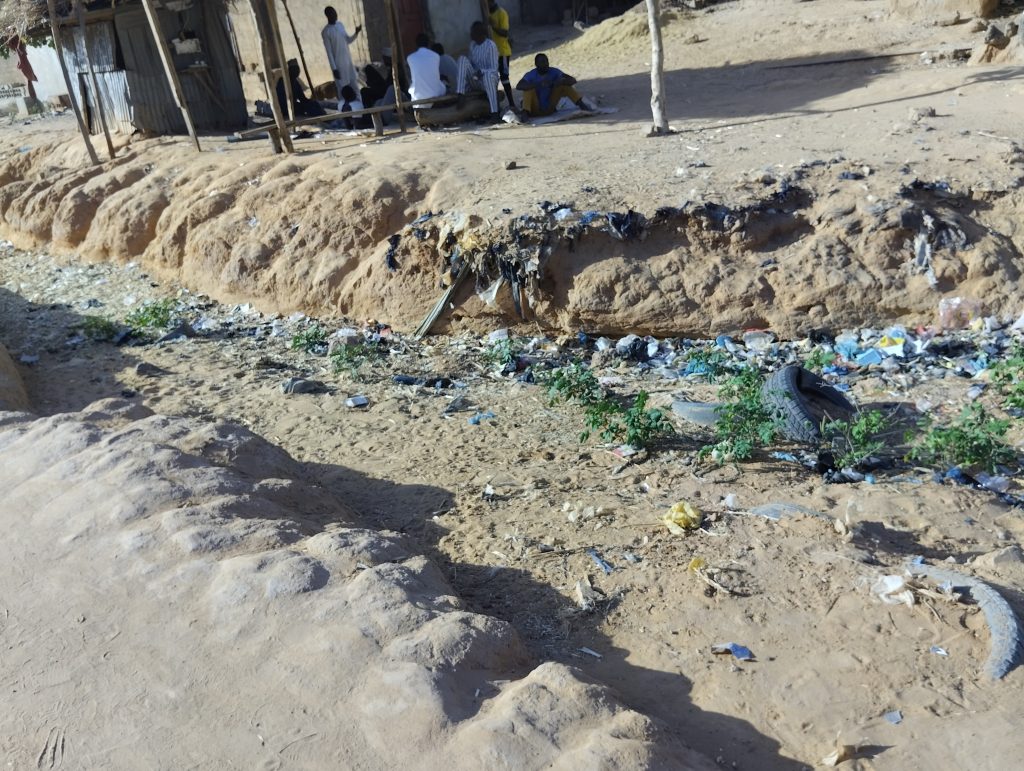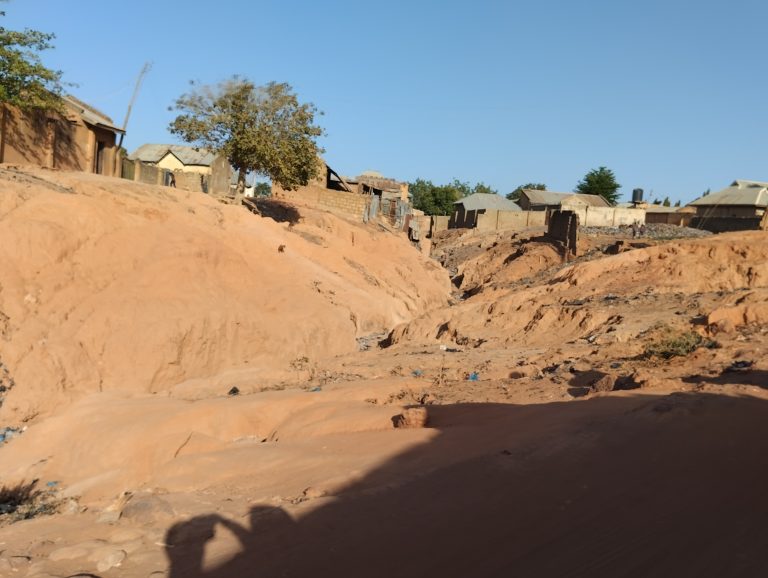On a sunny Wednesday afternoon in the Ruga Fulani area in Birnin Kebbi, the Kebbi state capital, Sufiyanu Abubakar narrates how he grew up seeing serious gully that threatened the lives of the residents and hindered their day-to-day activities, ASHENEWS reports.
“Our farming business is about to collapse due to erosion, our roads are bad as a result of the emergency. It is difficult to find a vehicle to convey sick people to the hospital in the town, they run into complications and die on the way most of the time”, Sufiyanu laments.
AUDIO: Climate Change: Kebbi communities battle terrifying gully erosion threat
“We have been organizing a community fundraising program to help ourselves. The situation at hand now is beyond the capacity of the community”, he added.

According to a report by Climate Action Africa, an estimated 6,000 gullies were obliterating homes, pipelines, and roadways by 2009 in rural and urban Nigeria. Due to harsh weather events, several Nigerians experienced anxiety and despair.
Erosion is recognized as one of the world’s most serious environmental problems. In Nigeria, agricultural productivity, sustainability, and management for food security/sustenance have been undermined by the menace posed by soil erosion.
The Federal Government of Nigeria in collaboration with the World Bank has intervened by establishing the Nigeria Erosion and Watershed Management Project (NEWMAP) program. The primary objective of this program is to reduce vulnerability to soil erosions.
Many lives have been lost as a result of soil erosion. Some people have either fallen into these gullies and sustained various degrees of injury or died. Other people have been reported to have lost their lives in events of gullying activities in the past few years.
Ruga Fulani in Kebbi State northwestern Nigeria has also experienced a plastering erosion crisis. Residents, especially during the rainy season have no access to healthcare and farming because the gully has created numerous calamities which can result in the loss of lives and properties.

Read Also: “My salary not enough” – Nigerian Nurse who earns N5.3m monthly in UK
“Our life is at risk,” says Bishalo Audu, a father of 5 who has lived in the area for over 20 years, “nothing has been done to the situation. We are desperate to go to our daily activities but cannot because of the gullies. Governments have made several promises, yet none of these promises have yielded any positive results.
“We want the government to help us to construct drainage that will channel the water into a nearby river down the community. It has to be a very big drainage looking at the havoc that the gully has caused. If that is not done, a greater disaster looms”.
“We don’t want to wait until we begin to lose lives and property”.
In the Ruga Fulani area, farmers who live around cannot farm, even though their farmlands were not engulfed by erosion. The erosion is taking a toll on the state capital is frustrating.
Tundun Wada also affected by erosion
The situation in the Tudun Wada area, at the heart of the state capital, is similar to that of Ruggar Fulani, as the gullies have been affecting them economically, agriculturally, and mentally.
Yahaya Abubakar, a father of 7 who was also a victim of flooding, describes gullies and the environmental issues as daunting.
He urges the state government to consider building a useful infrastructure for the safety of millions in the area.
“Once it is rainy season, I can’t sleep with my naked eyes because of fear of flooding. We became homeless during the season and we have been complaining about it times without number, but the government is yet to react” Yahaya speaks out.
Alqasim from Tudun Wada said that many children had been trapped in the gully and many houses were being destroyed.
“Every year, the gully led to the loss of life including animals. Sometimes we rescue people at midnight during the rainy season. Indeed, it is a gung-ho for any state to do it alone hence the need for collaboration in addressing the menace. That is why we are appealing to the government to urgently do something before the beginning of rainfall”.
According to an Environmentalist who is the Head of the College of Environment, Umaru Ali Shinkafi Polytechnic Sokoto, Dr Yusuf Umar, several factors are responsible for gully erosion. Just as he said Kebbi state is usually faced with heavy rain during the rainy season.
“One factor affecting the community is the poor drainage system. The erosion is aided by floodwater trying to find its channel. By doing so, it washes away the soil and expands the gullies every rainy season.
“Another factor is poor building plans. In the urban areas, there are houses with damp-proof courses. It is quite unfortunate that because of a lack of knowledge or poor civil engineers. Some houses don’t have good DPC that can send floodwater to the right channels provided for it. These are some of the factors responsible for the erosion, hence the need for government to address the menace”.

States and communities can begin to stop future gully erosions today through strict enforcement of all environmental laws and protection. This is imperative as human lives do not live in isolation from the environment.


